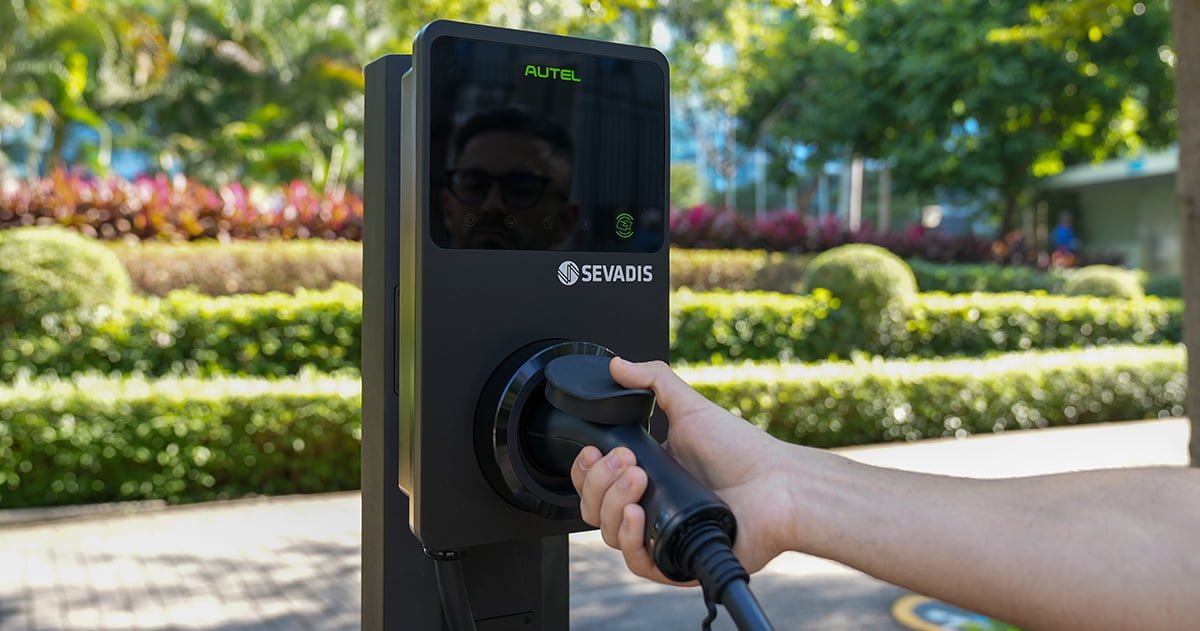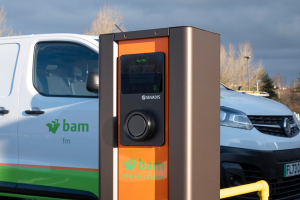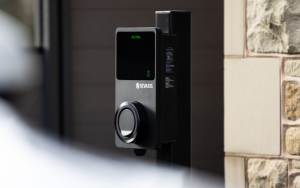Latest Articles
Smart EV Charging Regulations Explained
Latest Articles
Smart EV Charging Regulations Explained
Smart EV Charging Regulations Explained
From 30th June 2022, all electric vehicle charging points sold and installed for private use must comply with The Electric Vehicles (Smart Charge Points) Regulations 2021.
The regulations help to ensure that electric vehicle charging points possess smart functionalities, enabling electric vehicles to recharge when there is less demand on the grid or when more renewable and cleaner electricity is available.
Electric vehicle charging points must adhere to the following to comply with the regulations::
Smart Functionality
Charging points must be equipped with…
Smart functionality to send and receive information
The ability to respond to signals to increase the rate or time at which electricity flows through the charging point
Demand Side Response (DSR) services
A user interface, e.g. an app for charging
Electricity Supplier Interoperability
Charging points must retain smart functionality, even if the owner of the charging point decides to switch their electricity supplier. This feature ensures that charging point owners are not ‘locked in’ to a single electricity supplier. Electricity supplier interoperability also means charging point owners do not have to purchase a new charging point when switching suppliers.

Off-Peak Charging
EV charging points must also incorporate pre-set, off-peak, default charging hours whilst also allowing the owner to accept, remove or change these upon use. Default charging hours must be pre-set to NOT charge during times of peak electricity use — 8am-11am and 4pm-10pm on weekdays. However, the charge point owner must be able to override this feature should they require charging during peak hours.
Randomised Delayed Charging
Charging points must also have a randomised delayed charging function of up to 10 minutes at the beginning of each charging session. This function protects the grid from destabilising during scenarios when a high number of charging points are plugged into electric vehicles. The application of randomised delayed charging ensures grid stability in a more manageable way for the network.
Continued Charging
Charging points must rely on a communication network such as cellular, ethernet or WiFi to send and receive signals to achieve smart functionality. Charging points must be able to continue charging electric vehicles — even if the charging point ceases to be connected to a communications network.
Safety Provisions
Charging points must be equipped with safety provisions to prevent the user from carrying out an operation that could risk their health or safety.
A Measuring System
Charging points must have a measuring system in place to calculate the electricity imported and exported and the time the charging lasts. This information must be visible to the owner of the charging point.
Security
Charging points must be consistent with the existing cyber security standard ETSI EN 303 645.
Choose Sevadis for compliance
The implementation of the smart charging regulations has been a long time coming; standardisation of EV charging points is without a doubt crucial for the roll-out of the nation’s electric vehicle charging network.
At Sevadis, all of our charging points comply with the new regulations. Compliance ensures that installers and contractors can provide their clients with reliable charging solutions that are fit for purpose and the future of electrified transport.
For a more detailed overview of The Electric Vehicles (Smart Charge Points) Regulations 2021, please visit: Complying with The Electric Vehicles (Smart Charge Points) Regulations 2021 (publishing.service.gov.uk)
To view our range of compliant EV charging solutions, please visit: MaxiCharger – EV Charging Station – Sevadis
Share this post:
Share this post:
More Insights You Might Like
Depot Charging Scheme – Deadline Approaching!
Sevadis urges fleets to secure £1 million in EV charging support before it’s too late With just three weeks to
Enhanced Sevadis back-office improves the EV charging experience
Latest Articles Enhanced Sevadis back-office improves the EV charging experience Latest Articles Enhanced Sevadis back-office improves the EV charging experience
A Powerhouse Collaboration for BAM Charging Solutions & Sevadis
Latest Articles A Powerhouse Collaboration for BAM Charging Solutions & Sevadis Latest Articles A Powerhouse Collaboration for BAM Charging Solutions
5 Reasons Why the MaxiCharger Should be Your Charger of Choice
Latest Articles 5 Reasons Why the MaxiCharger Should be Your Charger of Choice Latest Articles 5 Reasons Why the MaxiCharger
Dynamic Load Balancing Explained
Latest Articles Dynamic Load Balancing Explained Latest Articles Dynamic Load Balancing Explained Dynamic Load Balancing ExplainedElectric vehicle adoption is at
Elevating EV Infrastructure Installations with Mr Charger
Latest Articles Elevating EV Infrastructure Installations with Mr Charger Latest Articles Elevating EV Infrastructure Installations with Mr Charger Elevating EV
Workplace Charging Scheme for Schools
Latest Articles Workplace Charging Scheme for Schools Latest Articles Workplace Charging Scheme for Schools With electrification on the rise and
DC Rapid EV Charging to Drive EV Uptake
Latest Articles DC Rapid EV Charging to Drive EV Uptake Latest Articles DC Rapid EV Charging to Drive EV Uptake
Why You Should Diversify Your Portfolio as an Installer
Latest Articles Why You Should Diversify Your Portfolio as an Installer Latest Articles Why You Should Diversify Your Portfolio as
OZEV Grants for EV Charging Covered
Latest Articles OZEV Grants for EV Charging Covered Latest Articles OZEV Grants for EV Charging Covered Electric vehicles (EVs) are
Understanding OCPP for EV Charging
Latest Articles Understanding OCPP for EV Charging Latest Articles Understanding OCPP for EV Charging What is OCPP?The Open Charge Point
5 Benefits of Installing EV Charging Points in the Workplace
Latest Articles 5 Benefits of Installing EV Charging Points in the Workplace Latest Articles 5 Benefits of Installing EV Charging
Smart EV Charging Regulations Explained
Latest Articles Smart EV Charging Regulations Explained Latest Articles Smart EV Charging Regulations Explained Smart EV Charging Regulations ExplainedFrom 30th
Futureproofing Your Next Housing Development with the MaxiCharger
Latest Articles Futureproofing Your Next Housing Development with the MaxiCharger Latest Articles Futureproofing Your Next Housing Development with the MaxiCharger















